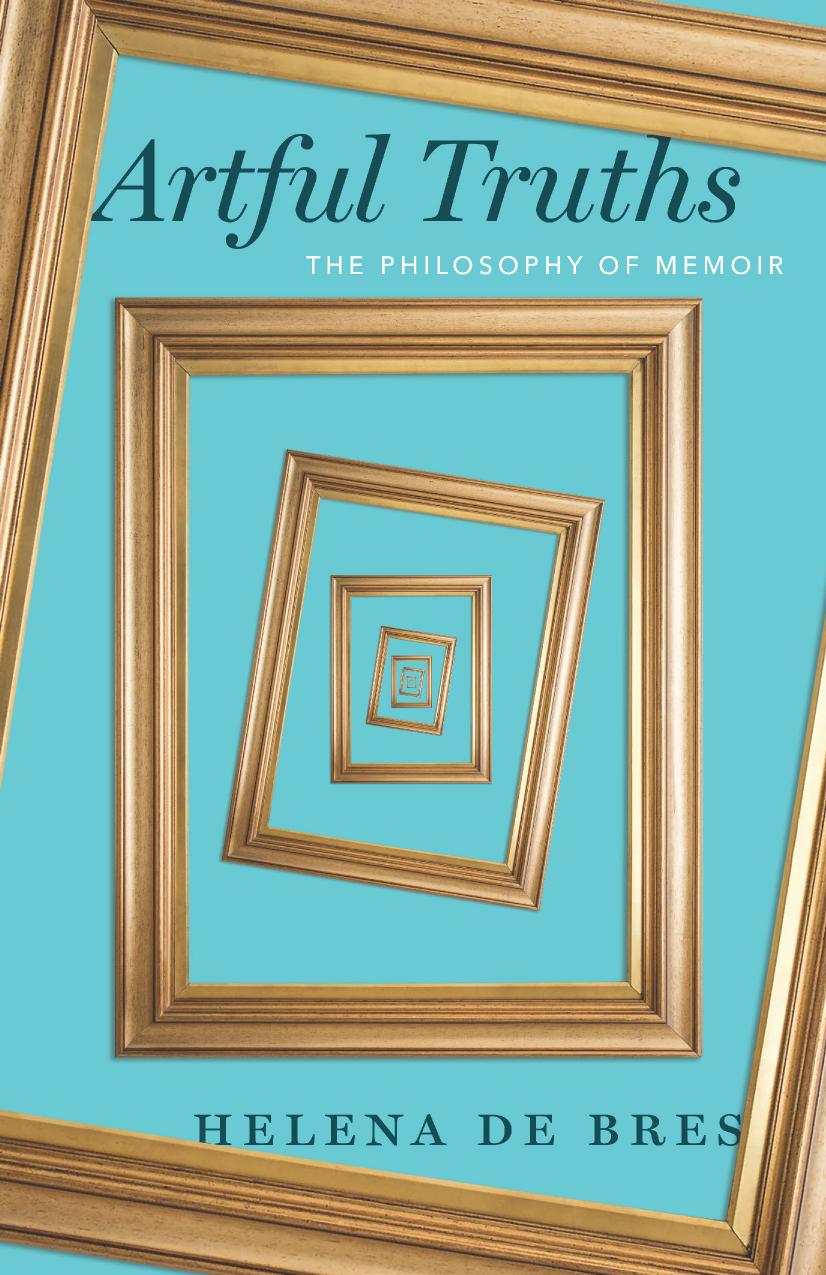Artful Truths: The Philosophy of Memoir by Helena de Bres

Author:Helena de Bres
Language: eng
Format: mobi, pdf
Tags: Language Arts & Disciplines, Aesthetics, Philosophy, General, Literary Criticism, Writing, Nonfiction (Incl. Memoirs)
ISBN: 9780226793801
Publisher: University of Chicago Press
Published: 2021-09-09T21:00:00+00:00
Why Write a Memoir?
Writing a good memoir is a daunting endeavor. First, thereâs the difficulty of capturing an authentic interpretation of your past experience in words, in light of the dangers of self-deception, self-ignorance, memory failure, and the distortions of narrative form. Second, thereâs the difficulty of balancing the commitment to telling your readers the truth with the possibly conflicting aim of producing a work with high literary value. Third, thereâs the difficulty of working out how to write about your subjects without wronging them in the process and how to weigh those moral requirements against the distinct imperatives of both truth and art.
But thatâs not all. As well as imposing these cognitive, aesthetic, and ethical demands, thereâs the fact that writing a memoir is personally costly to the writer. Producing a memoir of any substantial length and seriousness requires expending a huge amount of time and effort, in a pursuit that many of the writerâs intimates and associates may not understand or respect. It can be emotionally exhausting during the writing phase and anxiety-inducing after publication and may damage or destroy relationships the memoirist cherishes.
William Bell Scott said in the nineteenth century that âto write oneâs mental history is too difficult as well as too dreadfulâ: itâs âlike walking into the street naked, and is only likely to frighten our neighbors.â1 Henry James wrote of his autobiographical writing: âI [. . .] had to turn nothing less than myself inside out.â2 And Melissa Febos suggests, more recently: âIf it doesnât feel at some point like peeling off your own skin, youâre probably not being honest enough.â3
Given all that, why would someone do it?
The Memoirist as Narcissist
To have written an autobiography is already to have made yourself a monster.
williAM h. gAss 4
One common answer, usually from outside the memoirist camp, is that memoirists are narcissists, who get a kick out of contemplating and displaying themselves for a public audience. William H. Gassâ fiction writer, essayist, critic, and philosopherâwrote a jeremiad against memoirists on this theme in Harperâs in 1994, in the early years of todayâs memoir boom. In the essay, âThe Art of Self: Autobiography in an Age of Narcissism,â Gass takes a swipe at what he presents as the infantile self-preoccupation of the contemporary personal writer:
Look, Ma, Iâm breathing. See me take my initial toddle, use the potty, scratch my sister; win spin the bottle. Gee whiz, my first adulteryâwhat a guy! That surely deserves a commemorative marker on the superhighway of my life. So now Iâm writing my own sweet history.
As Gassâs title indicates, critiques of this kind often diagnose the problem of memoir as an instance of a broader social problem. Critics disagree over the causes: maybe itâs the erosion of communal bonds by urbanization and industrialization, or the destruction of the collective moral compass by atheism and postmodern nihilism, or the mainstreaming of navel-gazing via psychotherapy and self-help, or the look-at-me culture born of talk shows, reality TV, and social media. But whichever it is, the
Download
Artful Truths: The Philosophy of Memoir by Helena de Bres.pdf
This site does not store any files on its server. We only index and link to content provided by other sites. Please contact the content providers to delete copyright contents if any and email us, we'll remove relevant links or contents immediately.
The Power of Myth by Joseph Campbell & Bill Moyers(1057)
Half Moon Bay by Jonathan Kellerman & Jesse Kellerman(979)
Inseparable by Emma Donoghue(976)
A Social History of the Media by Peter Burke & Peter Burke(974)
The Nets of Modernism: Henry James, Virginia Woolf, James Joyce, and Sigmund Freud by Maud Ellmann(891)
The Spike by Mark Humphries;(809)
The Complete Correspondence 1928-1940 by Theodor W. Adorno & Walter Benjamin(783)
A Theory of Narrative Drawing by Simon Grennan(775)
Culture by Terry Eagleton(770)
Ideology by Eagleton Terry;(732)
World Philology by(712)
Farnsworth's Classical English Rhetoric by Ward Farnsworth(711)
Bodies from the Library 3 by Tony Medawar(707)
Game of Thrones and Philosophy by William Irwin(707)
High Albania by M. Edith Durham(698)
Adam Smith by Jonathan Conlin(686)
A Reader’s Companion to J. D. Salinger’s The Catcher in the Rye by Peter Beidler(675)
Comic Genius: Portraits of Funny People by(649)
Monkey King by Wu Cheng'en(646)
